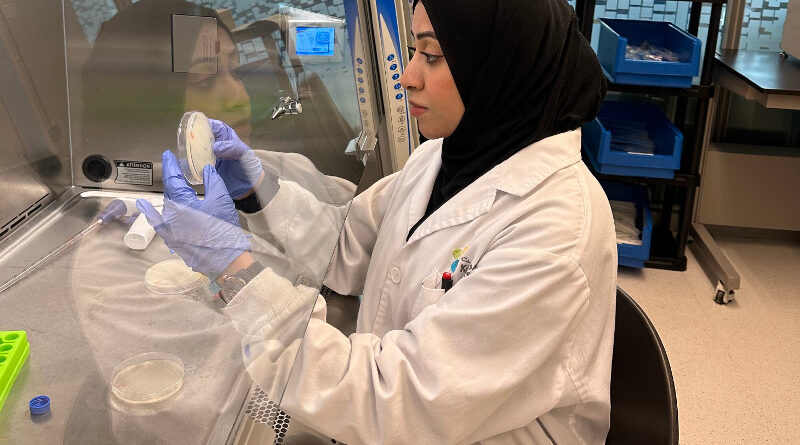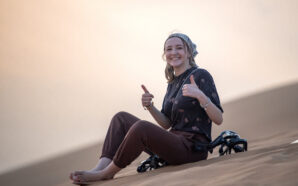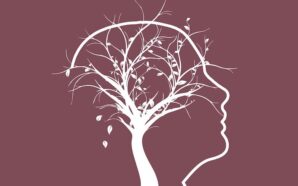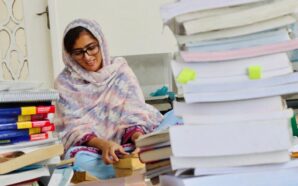The L’Oréal-UNESCO For Women in Science Middle East Regional Young Talents Program, in partnership with Khalifa University of Science and Technology, earlier celebrated a decade of empowering female scientists from the GCC in the fields of Life Sciences, Physical Sciences, Mathematics and Computer Science, who have blazed trails and are changing the landscape of scientific discovery in the region. Since its inception in the GCC in 2014, the program has made prodigious strides in nurturing and furthering the research endeavors of 51 female Arab scientists by awarding endowments totaling AED 3.4 million and supporting their professional growth. Among them are several scientists who have also received international recognition, with five going on to win the International Rising Talents Awards, and another four scientists receiving the L’Oréal-UNESCO For Women in Science International Award, as well. The regional program is part of the L’Oréal-UNESCO’s global For Women in Science initiative that has already recognized over 4,100 phenomenal researchers and more than 127 International Laureates from more than 110 countries since its inception in 1998. For the fifth year in a row, the program has been endorsed by H.E. Sarah Al Amiri, UAE Minister of State for Public Education and Advanced Technology and Chairperson of the UAE Space Agency. H.E. said: “The extraordinary accomplishments and dedication of women scientists in the region has paved the way for progress in various fields, influencing everything from healthcare and technology to environment sustainability and space exploration. Initiative like the one by the Foundation L’Oréal and UNESCO has been empowering female game-changers, encouraging more women into STEM careers, and paving the way toward diversity. Such programs create a necessary foundation in our pursuit for scientific progress, innovation and a more inclusive society.” According to the latest UNESCO Science report, even today, just one in three researchers is a woman, and this drops by nearly half at a senior level. Additionally, less than 4% of women have been awarded a Nobel Prize for Science. These unsettling figures continue to propel the L’Oréal-UNESCO For Women in Science Program, which was established on the ethos that ‘The world needs science and science needs women’. The program was created to break down barriers to progress for women in STEM and provide them with the tools to succeed.
Lila Ali Aldakheel from the Kingdom of Saudi Arabia has been selected for her research on identifying groups of microorganisms that can break down plastic to manage waste and help the environment.
- Tell us about yourself, your academic and professional journey.
I am Lila Aldakheel a PhD student at KAUST, I work with Professor Alexandre Rosado on the microbiology of extreme environments. Currently, I’m involved in a project examining microbes found in mangrove sediments and their role in degrading plastics. Before joining KAUST, I obtained my BS degree in Medical and Molecular Biology from the Massachusetts University of Pharmacy and Health Sciences in Boston, USA. During my undergraduate studies, I also worked as an intern under Dr. Daniel Bauer in the hematology lab of Boston Children’s Hospital. In 2017, I joined KAUST as a master’s student and worked in Professor Stefan Arold’s laboratory. Where I used Cryo-EM technology to gain a broader knowledge of protein structure and its functions. Before becoming a PhD student, I worked for one year as an intern at Red Sea Farms, a start-up specializing in sustainable agriculture. This experience provided me with the opportunity to work as a lab technician in Professor Mark Tester’s laboratory at KAUST. In my free time, I enjoy cycling, volleyball, and traveling to scenic locations around the world. Art is also one of my great passions, as I feel that painting and poetry are the perfect means to express our innermost emotions.
- What was the inspiration behind your choice of study and vocation?
When I was a kid, I was diagnosed with a genetic disease called sickle cell anemia. I had no clue what this disease was, what it meant, and how I got it. The ensuing discussion with my hematologist was the starting point of my life-long fascination with science as a whole, and with biology in particular. At a very young age, I wanted to learn about sickle cell anemia, and I always told my parents that I wanted to be a scientist to find a cure for this disease.
In 2011, I was awarded a full scholarship to study Molecular Biology in Boston, one of the leading scientific institutions in the world. I had the amazing opportunity to work as an intern in the Boston Children’s Hospital hematology lab with Dr Bauer. It was my first hands-on experience in the laboratory, and I enjoyed every moment of it. I’m proud to say that in 2016, I completed my bachelor’s degree with honors. I have learnt to accept that although this disease is not going away, it should not control my life, and it must never stop me from pursuing my goals. If I didn’t have sickle cell anemia, I don’t think I would be the same person, and I don’t believe that I would have accomplished everything I have. My disease is one of the main reasons for my passion for science.
- What have been some of the most significant milestones in your professional journey?
I’ve been fortunate to receive the King Abdullah Scholarship to study abroad in the USA. This milestone has encouraged me to continue pushing boundaries of my knowledge and skills. Along this journey, I’ve learned valuable lessons from challenges, and I’ve grown both personally and professionally. Another significant milestone was when I received a fully funded scholarship from KAUST for a master’s and PhD degree in bioscience. Participating in the ISME conference, one of the world’s largest international gatherings focused on microbiology, and interacting with remarkable scientists was a remarkable experience.
- What are some of the challenges that you have faced and how did you overcome them?
I started getting sickle cell crises during my teenage years. The pain could last from hours to days. Having sickle cell anemia affected my daily life and my school performance. I would spend days, if not weeks, in hospital. I still remember how sad I felt when I failed my second year of high school because I was admitted to the hospital multiple times and missed many of my classes and exams. I was very depressed at that time but today, I am grateful that I failed that year; because not being able to attend the school as a regular student made me appreciate school more and made me work even harder. As Oprah Winfery said: “There is no such thing as failure. Failure is just life trying to move us in another direction.”
All the hard work I put into my studies after repeating the year paid off. As I was one of the top students in Saudi Arabia, I was awarded a full scholarship to study Medical and Molecular Biology in Boston, one of the leading scientific institutions in the world.
- Do you believe gender has any part to play when it comes to challenges and milestones? And most importantly, do you think gender can also play a part when it comes to science in the sense – how you work, analyze, formulate, develop and/or create? Why or why not?
Gender can indeed factor into the challenges individuals face, as societal expectations and stereotypes can impact how people are treated. For instance, during my interviews with professors before being accepted into a PhD program, I encountered a situation where one of the professors asked me personal questions about my marital status and whether I had children, instead of focusing on pertinent inquiries related to my work. It’s unlikely that these types of questions would be posed to male applicants.
Regarding working and developing or creating, I don’t think gender may influence these things. It is about one’s skills, knowledge, experience and dedication. However, gender bias may affect the recognition of the individual’s contributions.
- We would love to know more about your work, the potential impact and the promise it holds.
My project is to examine the microbial communities inhabiting microplastic contaminated mangrove forests in the Red Sea. The focus will be on investigating the diversity, abundance, and richness of these microorganisms. In addition, I aim to find microplastic-degrading enzymes that can degrade plastics more efficiently than the enzymes that is already been found. I also aim to develop a methodology to study the accumulation of microplastics in mangrove soil and its negative impact on the terrestrial environment. Worldwide plastic production reached an astonishing 390.7 million tons in 2021, with more than 250,000 tons being discharged into the oceans. These plastics turn into microplastics which have a low degradation rate, leading to their persistence in the ecosystem for extended periods. Currently, there is a significant knowledge gap and growing interest in finding sustainable alternatives to combat marine plastic pollution. Fortunately, certain groups of microorganisms present in the environment have the potential for biodegrading plastics. My objective is to identify suitable microbial consortia and establish a framework for potentially engineering the microbial community and its metabolic activity to enhance the bioremediation process for plastics waste in the future.
- What does this recognition mean to you and how does it enable and empower you in your journey?
This award is not only a recognition of my efforts but a testament to everyone who have any health condition that they can push the boundaries and succeed. This recognition serves as a motivator to continue my work with renewed vigor and dedication. I am honored to be part of a community that strives for the betterment of humanity through knowledge and innovation. I consider this award as a significant achievement in my academic journey, one that will provide me with the motivation to excel and serve as a source of inspiration for the future generation of scientists.
- Any last words?
I want to express my heartfelt gratitude to L’Oréal-UNESCO For Women in Science for acknowledging my scientific endeavors and contributions. I am also profoundly grateful to KAUST for providing me the opportunity to conduct my research and generously providing the necessary resources. Additionally, I want to express my heartfelt thanks to my family and friends who have consistently believed in me and offered unwavering support throughout my journey.
Questions by Sabin Muzaffar
Interview has been lightly edited for clarity











